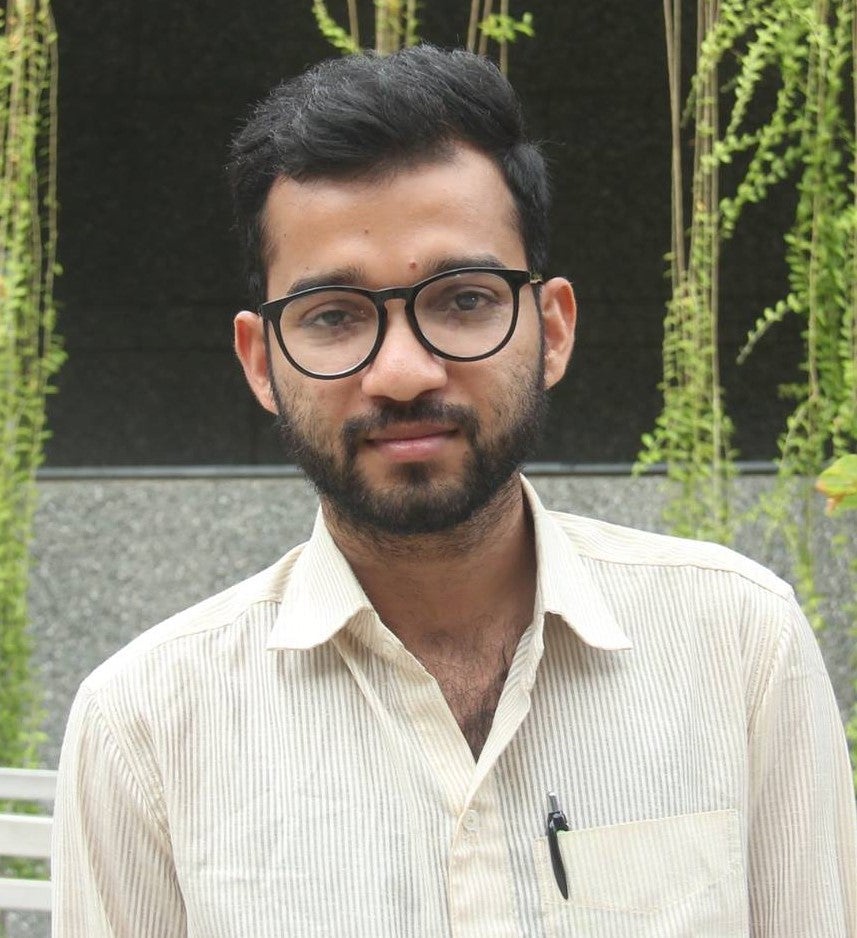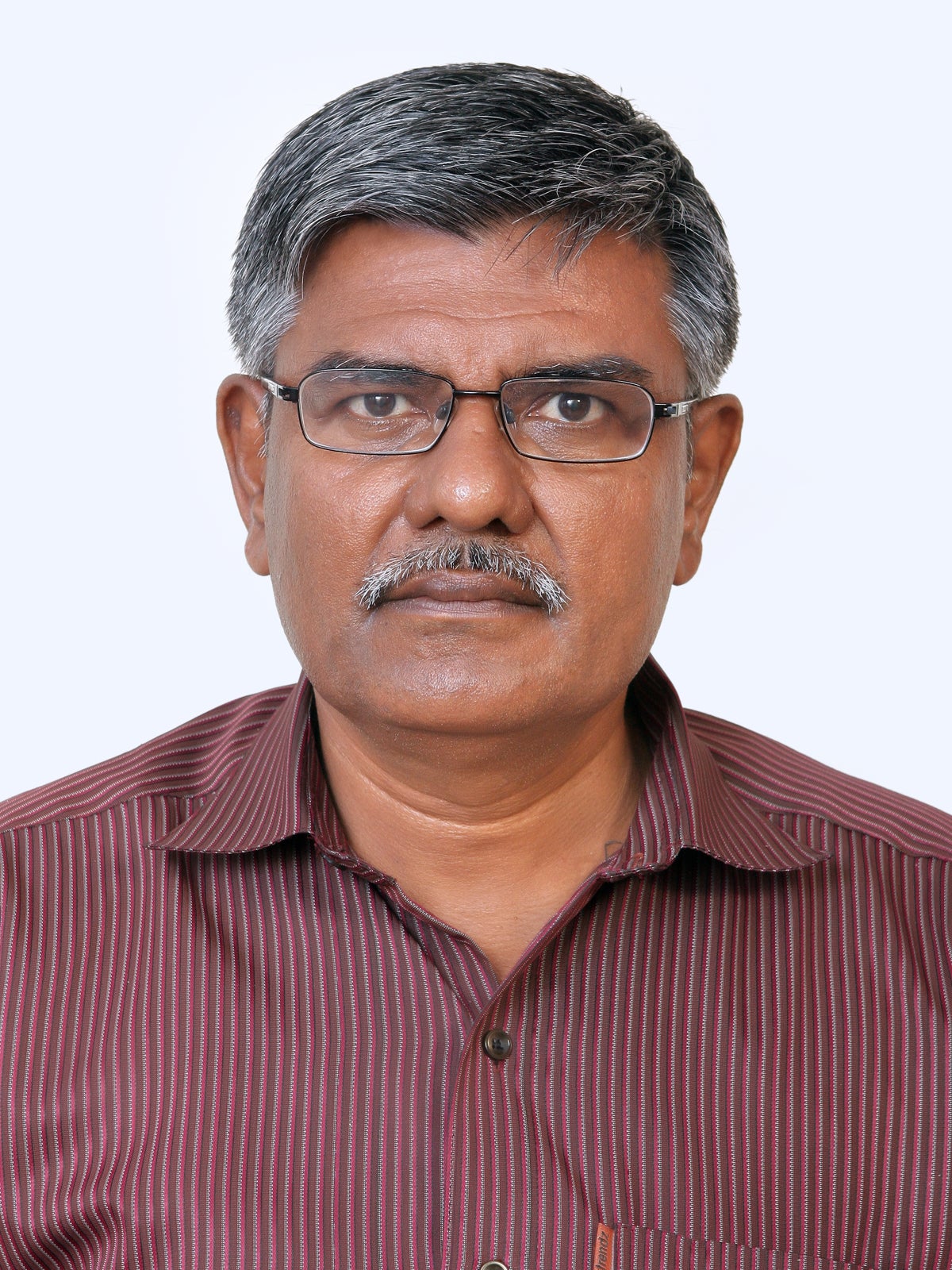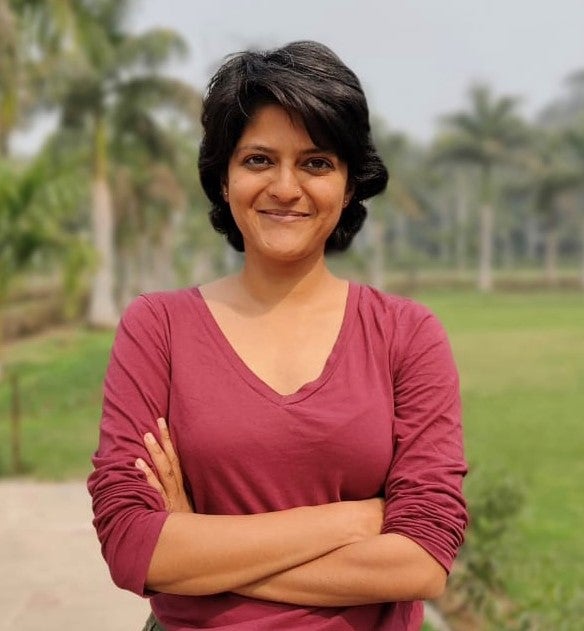 Sulaiman K. M. is a Ph.D. scholar of Population Studies at the International Institute for Population Sciences (IIPS), Mumbai. He is currently working on a doctoral thesis titled "Culture of Migration and Aspiration of Youth in Kerala by Considering Calicut, Kerala as a Study Area" under the guidance of Dr. R. B. Bhagat, Professor and Head, Department of Migration and Urban Studies. His work focuses on theoretical and empirical knowledge of the culture of migration, future migration aspirations, and social change. Mr. K. M. is an accomplished researcher and dedicated scholar in the development sector and has had experience in sociology, migration, gender studies, research methodology, public administration, and population studies.
Sulaiman K. M. is a Ph.D. scholar of Population Studies at the International Institute for Population Sciences (IIPS), Mumbai. He is currently working on a doctoral thesis titled "Culture of Migration and Aspiration of Youth in Kerala by Considering Calicut, Kerala as a Study Area" under the guidance of Dr. R. B. Bhagat, Professor and Head, Department of Migration and Urban Studies. His work focuses on theoretical and empirical knowledge of the culture of migration, future migration aspirations, and social change. Mr. K. M. is an accomplished researcher and dedicated scholar in the development sector and has had experience in sociology, migration, gender studies, research methodology, public administration, and population studies.
Mr. K. M. attempts to understand the effect of the COVID-19 lockdown on internal migrants by highlighting the issues related to social security, health, and the lack of inclusive migrant policies. India has a few programs or policies targeting migrant workers, but the category of migrants is still not visible in most of the major programs. There is a necessity to modify the prevailing policy structures and programs so that the needs of the migrant groups are addressed in the different national policies and programs. Special focus should be given to provide migrants health facilities and social security (food, shelter, education) to migrant families. The pandemic revealed that the problem of migrant workers mainly relates to their survival, livelihood, and exploitation. There is a need to mainstream migrants in development policies and programs for their inclusion and wellbeing. [Read More]
R. B. Bhagat
International Institute of Population Studies (IIPS), Mumbai S. Irudaya Rajan is Chairman of the International Institute of Migration and Development (IIMAD), India and Chair of the KNOMAD (the Global Knowledge Partnership on Migration and Development) thematic working group on internal migration and urbanization, World Bank. Previously, he was a Professor at the Centre for Development Studies, and Chair, Research Unit on International Migration (RUIM), funded by the erstwhile Ministry of Overseas Indian Affairs, Government of India (2006-2016). Dr. Rajan is the Founder Editor in Chief of Migration and Development (Taylor and Francis) and the editor of two Routledge series: India Migration Report and South Asia Migration Report. Dr. Rajan has published extensively in national and international journals on demographic, social, economic, political, and psychological implications of international migration. Dr. Rajan has coordinated eight major large-scale migration surveys in Kerala since 1998 (with K. C. Zachariah), Goa (2008), Punjab (2009), Tamil Nadu (2015), and instrumental for Gujarat (2011).
S. Irudaya Rajan is Chairman of the International Institute of Migration and Development (IIMAD), India and Chair of the KNOMAD (the Global Knowledge Partnership on Migration and Development) thematic working group on internal migration and urbanization, World Bank. Previously, he was a Professor at the Centre for Development Studies, and Chair, Research Unit on International Migration (RUIM), funded by the erstwhile Ministry of Overseas Indian Affairs, Government of India (2006-2016). Dr. Rajan is the Founder Editor in Chief of Migration and Development (Taylor and Francis) and the editor of two Routledge series: India Migration Report and South Asia Migration Report. Dr. Rajan has published extensively in national and international journals on demographic, social, economic, political, and psychological implications of international migration. Dr. Rajan has coordinated eight major large-scale migration surveys in Kerala since 1998 (with K. C. Zachariah), Goa (2008), Punjab (2009), Tamil Nadu (2015), and instrumental for Gujarat (2011).
In India, the pandemic precipitated a severe "crisis of mobility," with migrant laborers in many major cities seeking to return to their hometowns. Their desperate attempts to return home by any means available rendered the lockdown ineffective in several areas, prompting clashes with authorities, last-minute policy relief and, eventually, the arrangement of transport measures. Mental health itself is a contested cultural taboo in the context of India. Studies found that mental health issues are significantly higher among single, unskilled, illiterate daily wage laborers with higher years of migration and lack of housing and proper sanitation facilities. Therefore, the impact of COVID-19 and its related restrictions on the mental health of migrant workers can be varied and complex. Migrant workers are an already vulnerable population and COVID-19 aggravated several existing vulnerabilities such as fear of transmitting the disease, the absence of family, and care groups. [Read More] Anindita Adhikari is a Ph.D. Candidate in Sociology at Brown University, where her research examines accountability and welfare rights in India with a focus on social audits and the grievance redress law in Bihar. She has been associated with the Right to Work, Right to Information, and Right to Food campaigns for over a decade. Anindita has previously worked with the Government of Bihar and the Ministry of Rural Development on employment, social security, and land issues. In 2020, along with others, she set up the Stranded Workers Action Network (SWAN), a volunteer network that provided emergency relief to migrant workers during the COVID-19 induced lockdowns and contributed to documentation and advocacy efforts.
Anindita Adhikari is a Ph.D. Candidate in Sociology at Brown University, where her research examines accountability and welfare rights in India with a focus on social audits and the grievance redress law in Bihar. She has been associated with the Right to Work, Right to Information, and Right to Food campaigns for over a decade. Anindita has previously worked with the Government of Bihar and the Ministry of Rural Development on employment, social security, and land issues. In 2020, along with others, she set up the Stranded Workers Action Network (SWAN), a volunteer network that provided emergency relief to migrant workers during the COVID-19 induced lockdowns and contributed to documentation and advocacy efforts.
The 68 days national lockdown in India in 2020, as a measure to contain the spread of COVID-19, resulted in an unprecedented humanitarian crisis unlike any other in the world. In the first half of the lockdown, migrant workers were stranded with no food and money and with severe restrictions on movement when a mass exodus of workers back to their hometowns and villages began. In the second half, the workers’ distress were compounded with a series of chaotic travel orders and gross mismanagement of the repatriation process.The precariousness of lives and livelihoods of migrant workers resurfaced during the 2021 local lockdowns. This presentation will draw on the work of SWAN, a spontaneous relief effort that emerged soon after the first lockdown was announced in March 2020 and then regrouped in 2021. In addition to providing relief, SWAN concurrently documented the experiences of over 36,000 workers through the first lockdown and 8,000 workers in the second wave. The presentation will excerpt highlights from the 4 reports that SWAN published during the lockdowns focusing on the inadequacy of the government and judicial response. Anindita will present quantitative data on the profile of workers that reached out to SWAN, the extent of hunger, loss of livelihoods and income, as well as qualitative insights based on our interactions with workers, and discuss multiple dimensions of vulnerability to which they were exposed. [Read More]

